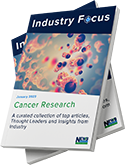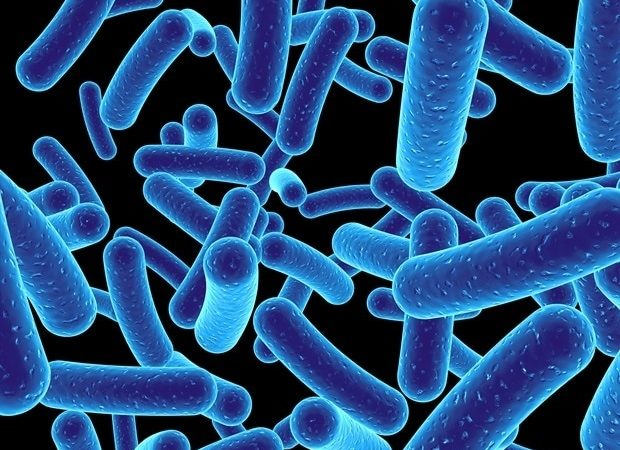Researchers at the Forsyth Institute have discovered an important mechanism that may have profound implications for how we prevent colorectal cancer. Oddly enough, their discovery began in the mouth.
Colorectal cancer is the second most deadly cancer, killing over 52,000 people a year. Increasing evidence indicates Fusobacterium nucleatum, an opportunistic oral pathogen is one of the factors causing colorectal cancer. Fusobacteria are often found in healthy mouths, living in balance with other bacteria in the oral microbiome. It is considered opportunistic because in certain conditions it quickly grows out of control and causes damage to the human host.
The researchers wanted to understand what kept Fusobacteria in check in healthy mouths. They found that a molecule naturally produced by the human host directly targets Fusobacteria and keeps it from taking over. The molecule is a small RNA.
Their results, described in "Targeting Fusobacterium nucleatum through Chemical Modifications of Host-derived Transfer RNA Fragments," which was published in the ISME Multidisciplinary Journal of Microbial Ecology, suggest a chemically modified version of this molecule could be used as a potential therapeutic to prevent colorectal cancer in the future.
"The amazing thing about this small RNA," said Dr. Xuesong He, a Forsyth Senior Member of Staff who led the study, "is that it is very potent and very targeted. It doesn't kill all the bacteria, good and bad. It only inhibits Fusobacteria. The ability to target a specific pathogen is what makes the molecule a promising therapeutic agent."
The oral microbiome, which is made up of communities of microbes, plays an important role in human health and disease. Disease occurs when the balance between the bacteria and host is upset. Certain pathogenic bacteria might start to increase and cause problems.
How does a microbe in the mouth affect other parts of our body?
In a healthy mouth with good hygiene, fusobacteria are kept in check. When the homeostasis of the mouth is disrupted by bad oral hygiene or weakened host immunity, it can create the perfect conditions for Fusobacteria to grow out of control."
Dr. Pu-Ting Dong, a Forsyth postdoctoral fellow and co-first author of the study
Cancer Research eBook

Often this overgrowth of Fusobacteria causes periodontal disease. However, it can also lead to more fatal diseases, such as colorectal cancer. If someone brushes and flosses irregularly and gets microbleeds, the bacteria can enter and travel through the bloodstream to other parts of the body, such as the colon. In addition to colorectal cancers, imbalances in the mouth are directly linked to other systemic conditions such as diabetes and Alzheimer's.
As part of the study, Dr. He's group teamed up with Dr. Jiahe Li (the co-corresponding author of this article) from Northeastern University and chemically modified the small RNA to be even more effective at inhibiting and preventing fusobacterial overgrowth. An international patent (PCT/US21/19890) has been filed for these modified Fusobacterium-targeting small RNAs by the Forsyth Institute and Northeastern University.
The researchers hope that their continued work in this field will lead to effective preventative therapeutics for Fusobacteria-related systemic diseases.
Other collaborators on the study included Drs. Wenyuan Shi and Lujia Cen from the Forsyth Institute; Dr. Mengdi Yang from Northeastern University.
Forsyth Institute
Yang, M., et al. (2023). Targeting Fusobacterium nucleatum through chemical modifications of host-derived transfer RNA fragments. The ISME Journal. doi.org/10.1038/s41396-023-01398-w.
Posted in: Molecular & Structural Biology | Cell Biology | Biochemistry
Tags: Bacteria, Cancer, Children, Colorectal, Colorectal Cancer, Craniofacial, Diabetes, Hospital, Hygiene, immunity, Microbiome, Molecule, Oral hygiene, Pathogen, Periodontal Disease, Public Health, Research, RNA, Therapeutics, Transfer RNA
Source: Read Full Article
